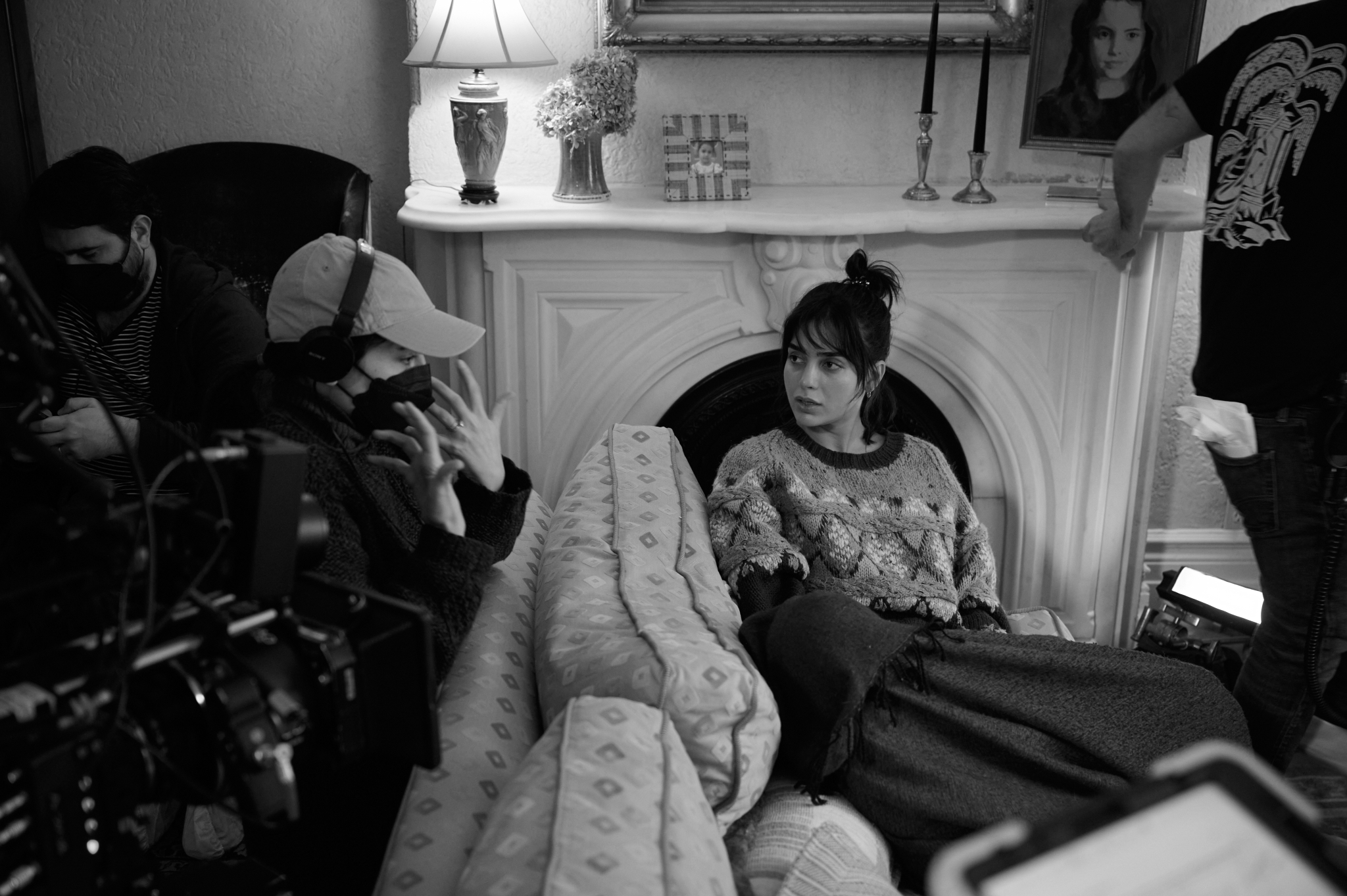
The actor joins A Rabbit’s Foot to discuss her enduring love for all things musical theatre, her vision for a film industry that values empathy, and her role in fantasy rom-com Your Monster.
It’s hard to watch Caroline Lindy’s debut feature Your Monster, a musical-tinged fantasy rom-com about finding your voice in an industry keen to suppress it at every turn, without considering the film’s parallels with its lead Melissa Barrera.
It’s something the Mexican actor has some familiarity with already: it was only a year ago that she used her own platform to speak out about the genocide in Gaza (one of the very few in Hollywood at the time to do so), a move which cost her her star-making role as the new face of the Scream franchise and opened the actor’s eyes to the true nature of an industry she had long admired. “It changed how I viewed everything.” She admits, dialling in from her apartment in Canada. “I had idealised the industry in a lot of ways, and it all shattered for me after that.”
But Barrera’s conviction in the face of injustice has remained the stuff of steel, and as the world reels from the news of Donald Trump’s re-election as president, she seems set on holding on to a semblance of hope, though simultaneously refusing to ignore the bleak reality of the moment. “It’s a dark time for the world as a whole.” She says. “It was right there in front of our faces for the longest time. If you’re at all connected to what’s going on in the world and thinking nowadays, then it shouldn’t come as a surprise that this is where we are. But maybe we need to hit rock bottom to revolt, and rebuild.”
Your Monster imagines a meeting point for the most prominent of Barrera’s screen identities, as both a modern Scream Queen (as well as Scream 6, she recently starred in 2024 horror-comedy Abigail) and burgeoning musical theatre icon for the new gen (In The Heights, Carmen). A contemporary-set Beauty & The Beast fable that re-imagines the classic fairy tale as an allegory for self-love, the film sees Barrera as passive stage-actor and recovering cancer-patient Laura who, after losing the love of her life and her dream role, finds solace with the hulking-but-charming monster (Tommy Dewey) living in the closet of her childhood home.
Below, Barrera discusses her appreciation for indie-filmmaking, her enduring love for all things musical theatre, and her vision for a film industry that values empathy.
Warning: spoilers for Your Monster ahead.
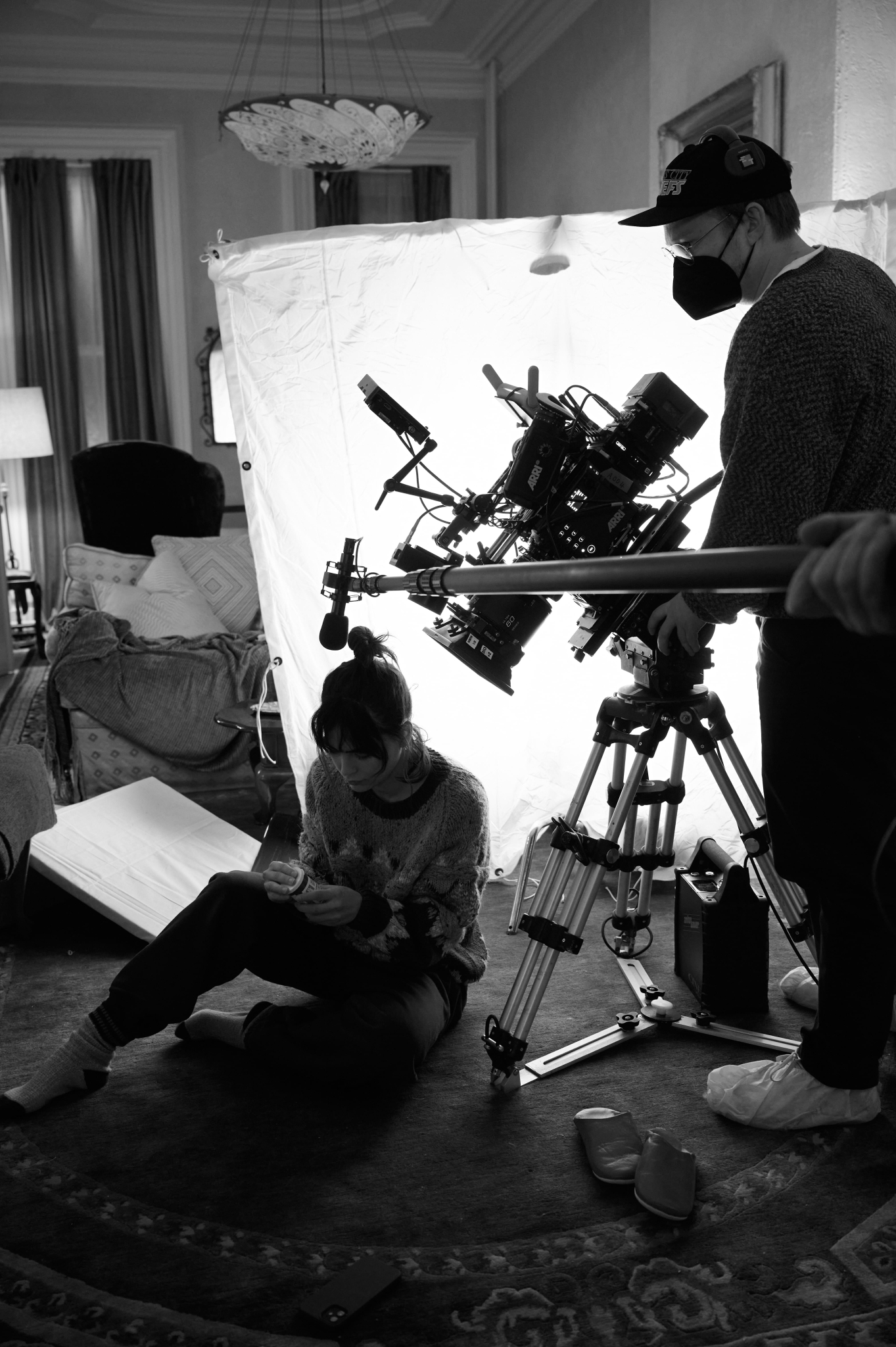
Melissa Barrera on the set of Your Monster. Courtesy of Vertical.
Luke Georgiades: The movie feels perfect for you for so many different reasons. How did the project come to you?
Melissa Barrera: Me and Caroline Lindy have a mutual friend, who called me and let me know that she would be making her first feature, and who vouched for her. I think she called him and asked him to put in a good word [laughs], but that goes a long way for me, when someone that you admire tells you that a collaborator is talented and a good person, it’s automatically a check mark in my book. I read the script, and it felt like something I had dreamt up myself.
LG: I know this is a personal story for Caroline, so I wonder how you both went about fleshing out this character. Did it take a few therapy sessions between you to bring this character to life?
MB: We did a few sessions at Laura’s apartment in Hoboken, where we were all staying. We would order Chinese food and work through the scenes. She’d be re-writing on her computer, and we’d try it and improvise a little bit, and then she’d suggest something else. It was a workshop. It felt like theatre, and the more time I spent with her the more I observed her on a subconscious level. I wasn’t intentionally trying to portray her, but because I knew it was personal to her I tried to adopt her mannerisms, the way that she speaks, her inflections. Caroline pushes up her glasses from the centre, and I wanted that little detail for Laura. I don’t even think she was picking up on me doing that, but when we had our first screening in New York some of her family members came up to me and said “oh my god, you played her so well.” That’s the biggest compliment I ever could have had.
LG: Do you find that it’s rare to work on a movie that cares as much about workshopping in the way you’ve just described?
MB: That’s the beauty of Indie filmmaking. It’s a passion project. No one’s making the big bucks. You’re crunched for time. And everyone who’s on the project has found a personal connection to the story. That was very apparent on this production. On Indie films the stakes are so high for everyone, not just for me as the face of this movie. It’s make or break. This is Caroline’s first movie. As a female director, if that doesn’t connect with audiences, then how many years would she have to wait before she gets another shot at that? People say if you have a flop then you’re in jail. I don’t necessarily think that’s 100% true, but there is that fear of “this needs to be what we want it to be”. You want people to identify, to feel seen, to smile. Caroline always says that she wants to make movies that make people feel safe in a movie theatre. She wants to make cosy, feel-good movies that are saying a lot if you’re looking to catch the brilliant nuances that she’s imbuing into, for example, this seemingly simple rom-com. If you don’t want to catch the nuances, that’s okay too, you’ll still leave the theatre satisfied, with a smile on your face.
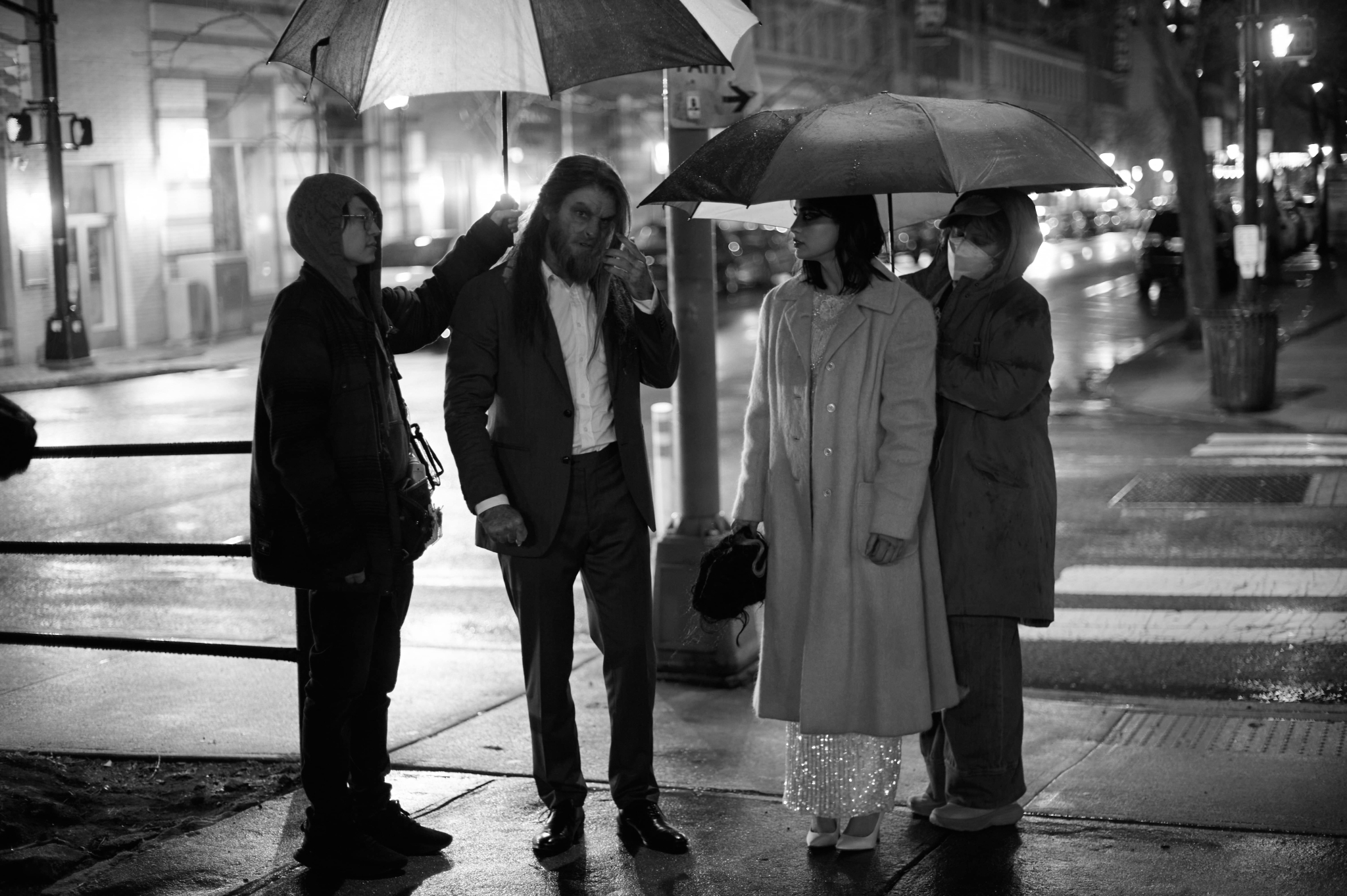
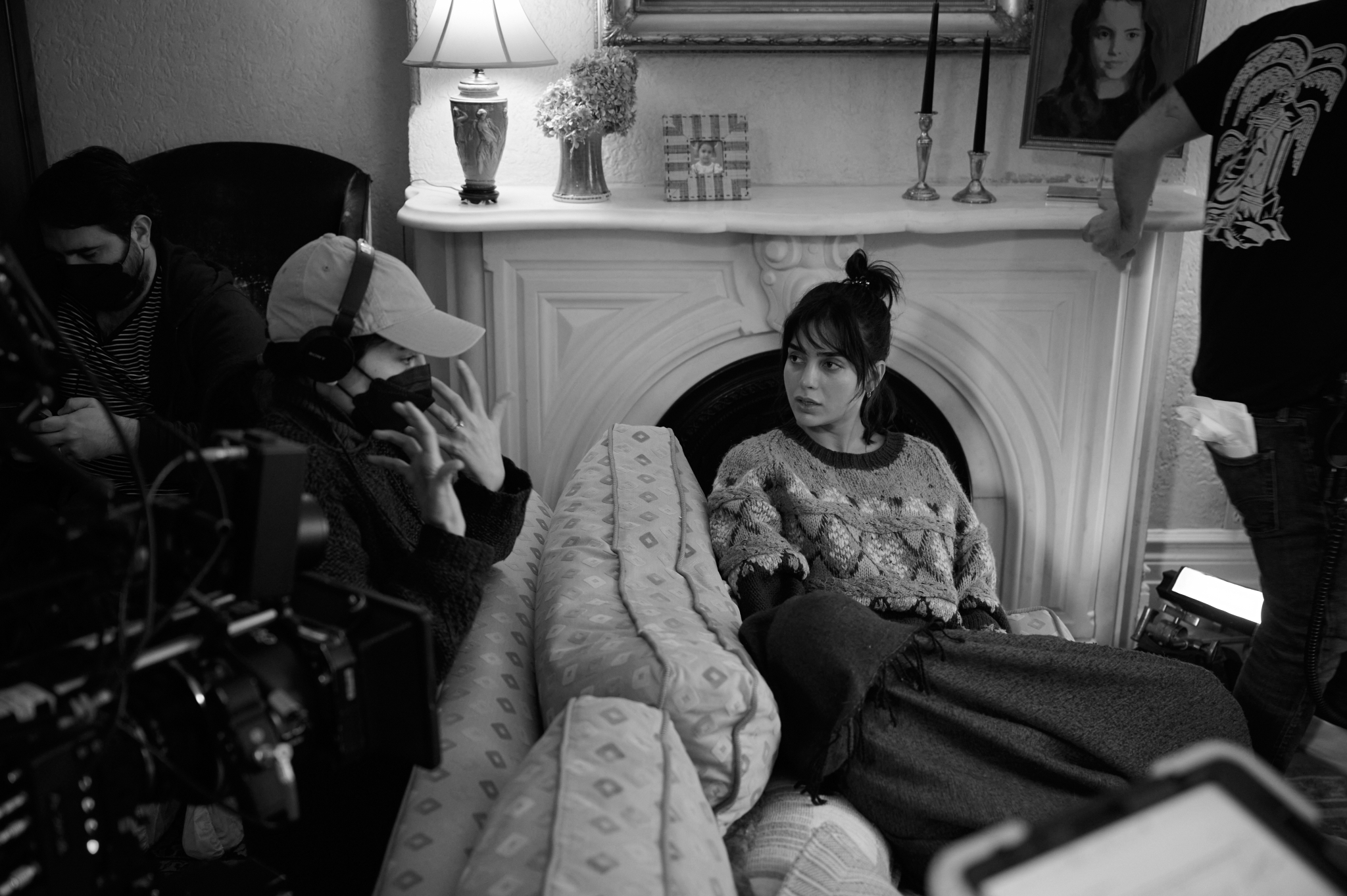
LG: This movie feels like the coming together of these two seemingly conflicting moods and genres in horror and musical theatre, down to the scene where you and Monster are wrestling for control of whether to watch a horror or a comedy film on TV. I couldn’t help but notice the parallels with you because you are also in some ways the meeting point of those two genres. Did it come naturally to find the chemistry between those genres for you?
MB: In my world, they’ve always gone hand in hand. It’s Sweeney Todd. It’s Little Shop of Horrors. They’ve never been in conflict. There’s always been a world where those two moods go beautifully together. For me, it was more like, oh, amazing, I’ve been doing horror for the last couple of years, and it’s new for me and I love it, but I miss musical theatre since doing In The Heights and Carmen, so being able to do both in an unconventional way. It’s like everything I ever wanted to do is in this movie. The most fun I’ve ever had on set was either while being covered in blood or doing a musical number.
LG: It’s interesting because now you have this fanbase of horror kids and musical theatre kids. Do you feel like movie musicals are a harder sell to general audiences in 2024 than they were when The Greatest Showman and La La Land and Hamilton came out?
MB: I think those films were exceptions. For a really long time people have been shunning musical movies, and I wish I understood why, because that’s not me. I would exclusively do musicals if I could. That’s my jam, that’s what I love. There was a time during the Golden Age of Hollywood where everybody was a triple threat and most movies were musicals, and people loved that. Maybe it’s because the world was going through a hard time during that era, and musicals kind of came to the rescue. Maybe history will repeat itself, we’re in a dark time right now. So maybe people will feel more open to musicals. I hope so, nothing would make me happier. I do think there are a lot of good ones and a lot of not-so-good ones that have been made as of late, and I think quality has in general been sacrificed for quantity. So maybe that’s attributed to people thinking that musical movies suck. But you just need one to make you fall back in love. Just like in the theatre, you need one good show that’ll get you hooked. And then you find the ones you like. It would be boring if everyone liked the same thing. But, yeah. It makes me sad that musicals don’t sell at the box office, but Wicked is coming, so let’s see.
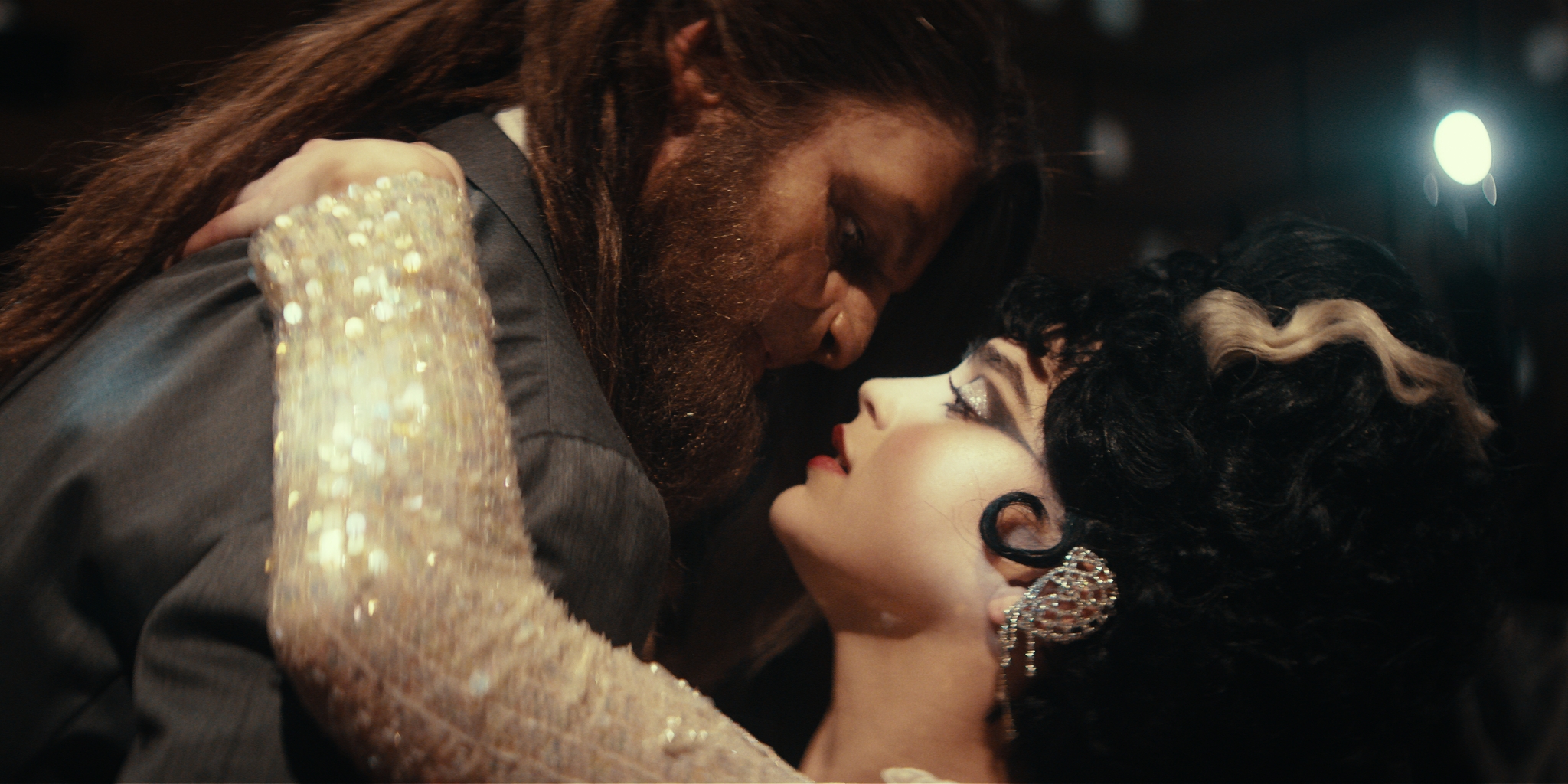
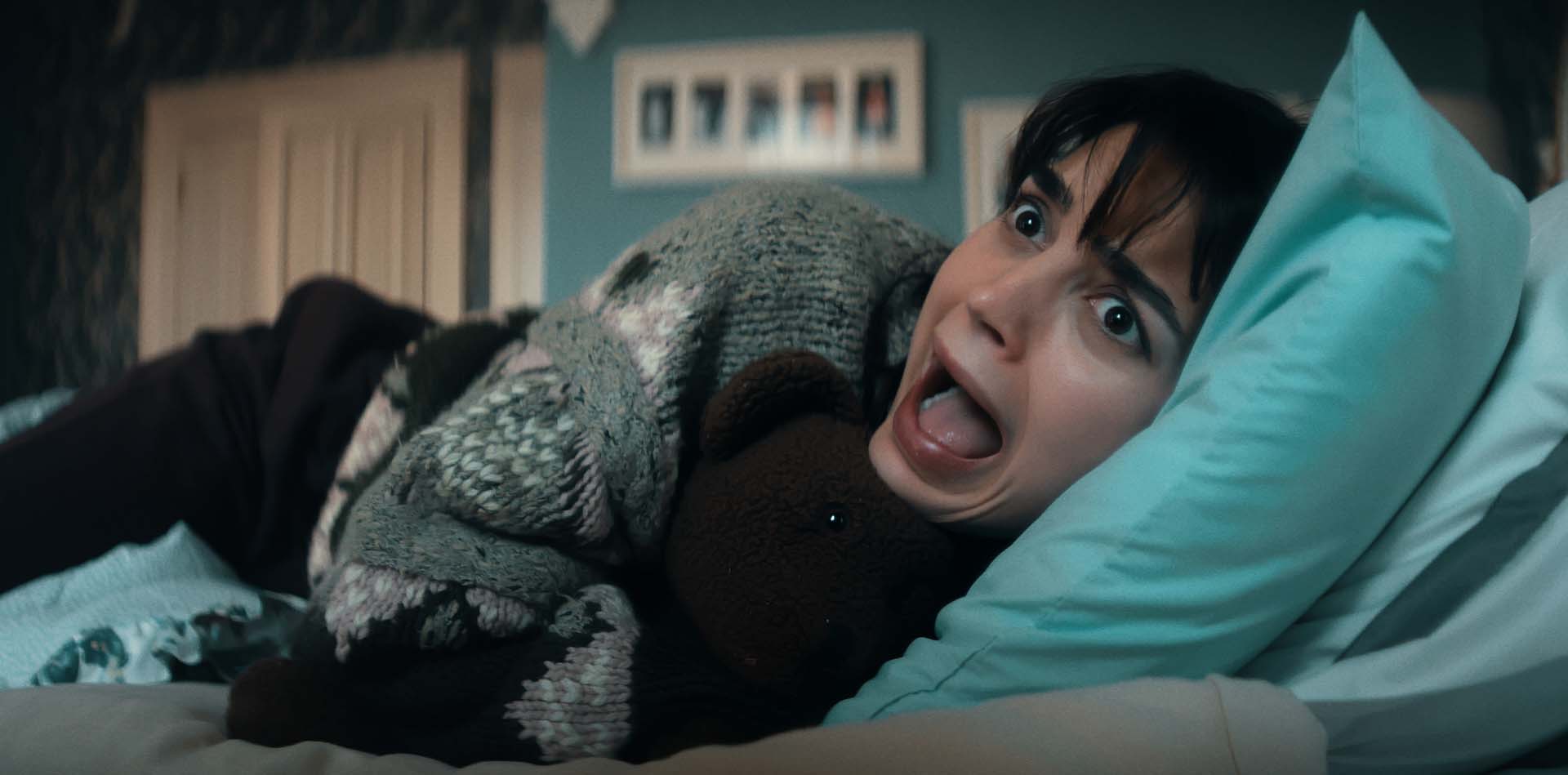
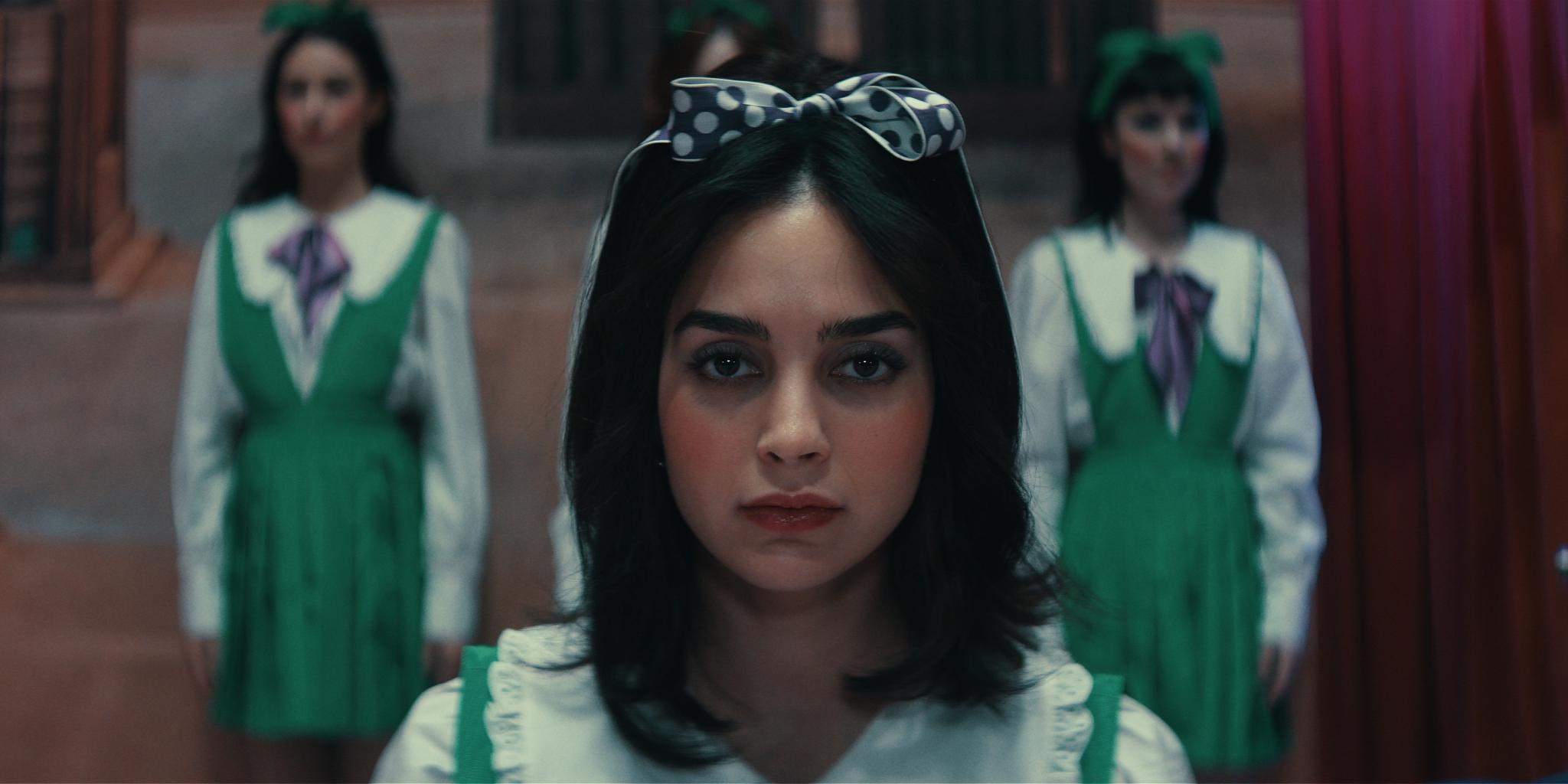
LG: I wonder if it’s because part of our culture has now evolved to be weary of sincerity, which is what a lot of musical theatre is built on. This film seems to love and believe in what it is.
MB: That’s beautiful, I love that. And we did love making it. We were all in it. We’re excited for it to come out in the UK because we won Sundance London. And I was nervous about that screening, because Brits have a dark sense of humour. I wasn’t sure if you were going to laugh at this cute movie, but the reaction was incredible.
LG: Well, the movie isn’t that cute—you do murder someone at the end and you probably go to jail.
MB: [Laughs] That’s true. Let’s not think about that! She has her moment! She has her star moment! Let’s say that Monster whisks her away afterwards.
LG: Is there a dream musical adaptation you would love to star in?
MB: If they ever made the movie musical of Waitress: The Musical, I would love to be in that. It’s just such a great score. It’s a musical about pie, but Sara Bareilles just channels the deliciousness of pie through the music, and you can just bathe in it. That would be a cool role to play, even on stage. I also love Aida—which Elton John did the music for. They should make that a movie. It’s an amazing epic romance that would translate beautifully to the screen.
LG: You made a decision not too long ago to use your platform to speak out about the genocide happening in Gaza. Has that experience changed how you approach this industry? I couldn’t help but notice the parallel, too, between the decisions your character makes in the movie and that scenario, in which you used your own voice to speak out when a lot of people stood by saying nothing.
MB: It definitely completely lifted a veil for me. I saw certain people clearly, I saw the industry clearly. It changed how I viewed everything. I had idealised the industry in a lot of ways, and it all shattered for me after that. That’s not to say I don’t love what I do. But there were people I admired, that I was a fan of, who didn’t speak up. And I realised that if you aren’t willing to stand for something then you aren’t worthy of admiration. It made me even more passionate about being intentional in the stories I’m going to continue to tell. Because I think there’s a lot of silencing and censorship of a lot of important stories that need to be told, So if I can contribute to helping tell those stories that are truthful, and that encourage empathy, I think that’s what I want to do. I want to work with people that share that vision. That moment was a life filter. It cleared out a lot of people in my life that I didn’t even want in my life anyway, I realised, and it brought so many people into my life that feel a lot more aligned to my values. Those are the people I want to collaborate and build something with. This industry treats a lot of people like they’re disposable, and that’s a big issue. That needs to change.





